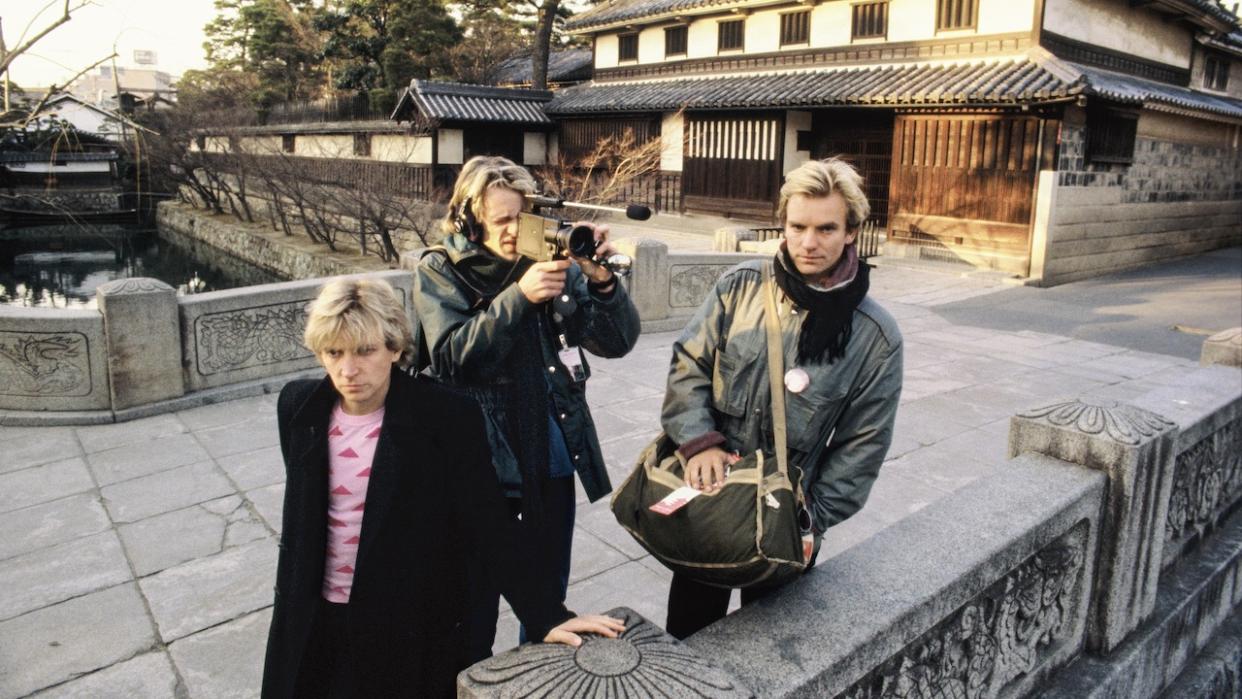Ghost In The Machine may have made The Police global superstars, but it marked the beginning of the end for the group

"All for one, one for all? Fuck that. That's very limited. I'm out for myself and they know it!"
By December 1980, The Police were on top of the world. Released two months earlier, their second album, Zenyatta Mondatta, debuted at number one in the UK, with Don't Stand So Close To Me, their third UK number one single, becoming the biggest-selling single of the year. In America, they were set to headline New York's legendary Madison Square Garden, in Australia the album had also topped the nation charts. But if this kind of success sounds like the dream for any young band, it was accompanied by tensions which threatened to tear the band apart. Talking to Classic Rock in 2023, guitarist Andy Summers stated that by this point, he had decided that he was "working with two total arseholes."
The quote at the beginning of this article came from Sting, the band's vocalist/bassist speaking to English music writer Phil Sutcliffe for The Police: L'Historia Bandido, a band biography he was working upon with fellow writer Hugh Fielder. "As long as the group is useful for my career I'll stay," Sting added. "When it isn't I'll drop it like a stone... I do sometimes think, I want this to end."
"The artist in me is looking for death, it's looking for destruction."
Given Sting's mindset, it's no surprise to hear that the sessions for The Police's next album at AIR Studios in Montserrat the following summer were fraught and fractious. It was producer Hugh Padgham's idea that the three musicians should record in separate rooms at AIR - Sting in the control room, Summers in the main studio, and drummer Stewart Copeland in the facility's dining room - but the arrangement served as a neat visual metaphor for the divisions within the group. The mood probably wasn't helped by Andy Summers getting a phone call from his wife Kate during the sessions telling him that she wanted a divorce: it definitely wasn't helped by the fact that, by this point, Sting had discovered the 'joys' of cocaine.
Revisiting the time period for an article in MOJO magazine in the summer of 2008, Phil Sutcliffe quotes Stewart Copeland's ex-wife Sonja Kristina, vocalist with his former band Curved Air, as saying, "Sting was never really into drugs until being around coke. It had a bad effect on his personality. It made him less considerate, therefore more prima donna-ish and tiresome."
When this quote was shared with Sting, who freely admitted "I was terrible to work with, I was unsympathetic, aggressive, mean, selfish, egotistical", he didn't deny the observations.
"I'm sure," he admitted to Sutcliffe . "Cocaine is horrible. It makes you feel uncomfortable in your skin. I was lucky I couldn't get much of it into my system because it always blocked up my sinuses. I realised it was so stupid taking it that, some time after we recorded Ghost, I did it one last time, said some kind of ritual incantation and got rid of the rest. I never took it again."
Not that his ego deflated accordingly. When A&M, the band's label, suggested that the Andy Summers-penned Omegaman should be the album's first single, Sting flat-out vetoed the idea, insisting that it should not be a single at any point. Instead, the chosen singles, Invisible Sun, Every Little Thing She Does Is Magic and Spirits In The Material World, would all be Sting compositions. Ultimately, it's hard to argue with the frontman's vision - Every Little Thing She Does Is Magic would top the charts in the UK, Ireland, Holland and Canada, peaking at number 3 on the Billboard chart in America - but his bloodymindedness only further exacerbated the discord within an already fractured unit. The album would be an important stepping stone towards The Police's undisputed masterpiece, 1983's Synchronicity, but the writing was on the wall for the group, and the end for The Police was very much in sight.
